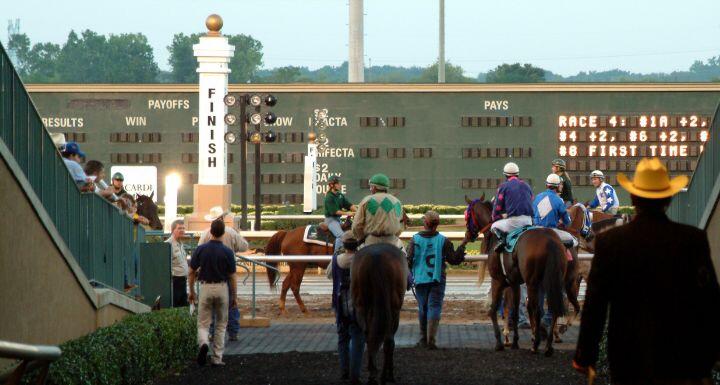In June, North Carolina lawmakers approved legislation legalizing mobile and in-person sports wagering after a multi-year standoff that included the same legislation failing in the 2022 legislative session by a mere one-vote margin.
Governor Roy Cooper was accompanied by executives from all major professional sports teams in North Carolina during the bill signing on June 14th in Charlotte, marking the most prominent bipartisan bill to pass so far this legislative session.
Authorization of Wagers on Live Horse Racing
One portion of the law that was not included in the ill-fated 2022 legislation and was a late addition by the Senate Commerce and Insurance Committee is the authorization of wagers on live horse racing, as well as pari-mutuel wagering. Pari-mutuel wagering is a type of multi-state, pooled wagering where the odds of winning are not permanently set and change as number of bets placed increases. Oftentimes, pari-mutuel wagering is also referred to as online horserace betting. Prior to the passage of House Bill 347, only certain federally recognized tribes were allowed to accept bets at their casino locations for horse racing.
Much has been written regarding the drawn-out negotiations surrounding sports betting legislation in North Carolina, the many players that were involved, and the broad, bipartisan approval it ultimately received. Many may have glossed over the significant addition of horse racing, and below we will explain the roll-out of legalized horse race wagering, when bets can begin to be placed, and what the future holds for equine sports as it relates to gambling in North Carolina.
Role of the North Carolina Lottery Commission
The North Carolina Lottery Commission, a nine-member body made up of legislative and gubernatorial appointments, currently serves as the regulating body for the North Carolina Education Lottery. As House Bill 347 dictates, the Lottery Commission will now hold the important role of establishing rules and regulations for interactive sports wagering, issuing licenses for sports wagering as well as horse race and pari-mutuel wagering facilities, and ensuring compliance with the Interstate Horseracing Act as it applies to pari-mutuel wagering. Each of those Advance-Deposit Wager (ADW) licenses, which are a separate license from those required to operate a sports wagering facility, would require a $1,000,000 application fee and would be valid for five years with an option for the license to be renewed for an additional five years. While the legislation did place a maximum license figure at twelve total interactive sports wagering licenses, it did not place a limit on the total number of ADW licenses the Commission could grant.
Timeline for Implementation of Sports Wagering
Currently, the Commission is accepting applications for licenses, but the legislation required that those licenses would not go into effect operationally until at least January 8, 2024, or a date determined by the Commission, but no later than June 14, 2024. Most observers expect the online portion of horse racing wagering, along with the entire package for interactive sports wagering licensing, to be rolled out by the Lottery Commission by Spring 2024.
Potential Expansion of Sport Wagering
Looking ahead as the Lottery Commission prepares to launch a new landscape of wagering in North Carolina, it may receive yet another hefty task from the General Assembly, as that body considers another expansion of gambling in this State with the potential legalization of commercial casinos. Currently, there are only three casinos operating in North Carolina, all on Tribal lands in the western part of the State. Although not officially a public piece of legislation, multiple news reports in recent months have chronicled the negotiations around authorizing up to three new commercial casinos, with a fourth authorized for the Lumbee Tribe in southeastern North Carolina. Those negotiations have seemingly stalled the already tardy state budget, which was due at the start of the state fiscal year on July 1.
Should those negotiations be fruitful and the General Assembly authorizes additional casinos in the state, there could be a significant opportunity for the expansion of horse race gambling at those casino sites. Currently, casinos are being contemplated for Anson, Nash, and Rockingham Counties, while the Lumbee Tribe is expected to be given multiple county options for their potential casino operation. Although much of the attention on this issue has been focused on the actual casino facility, proponents of the legislation describe them more as entertainment districts, anchored by a casino, that also includes hotels, restaurants, shopping, and attractions. If the effort is successful, it is conceivable that developers would consider co-siting horse racing facilities to offer additional onsite gambling opportunities.
Conclusion
At this time, it remains unclear whether the casino legalization effort will be successful at the General Assembly. After the expansion of gambling with sports wagering passing this year, many General Assembly observers expected no further action on "sin" related legislation for the remainder of the session, but the possibility of further expansion of gambling in the Tar Heel State remains very real. As always, your Ward and Smith's Government Relations team will be on the ground following negotiations and will provide you with the most relevant updates as they become available.









